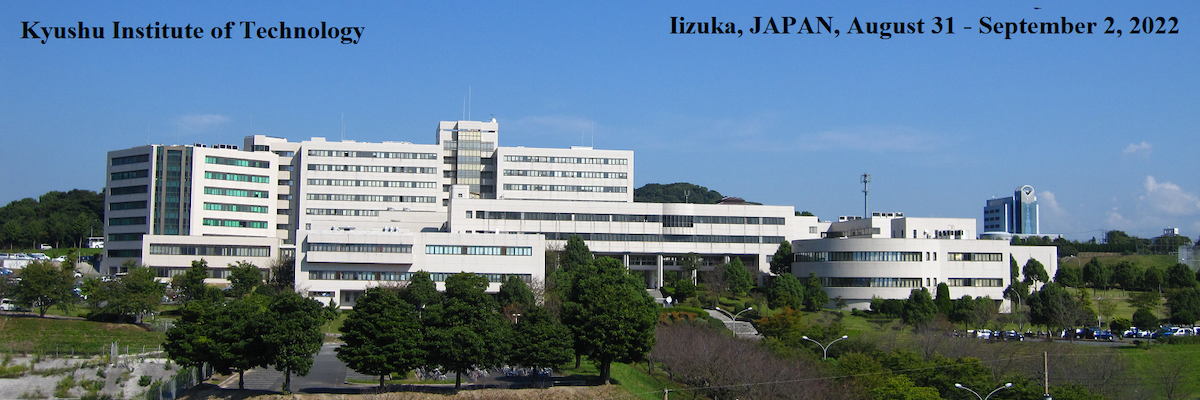OS1: Simulation Technology in Origami
| Organizer | Sachiko Ishida (Meiji Univ.) |
| Co-organizer | Xilu Zhao (Saitama Inst. of Tech.) |
| Objective | This session aims to discuss, but is not limited to, numerical simulation on origami geometry and mechanism, applications of computational origami, numerical approach to design and fabrication of origami-related products, visualization and software development of origami systems, and education using computational origami and origami-related software. |
OS2: Verified Numerical Computations
| Organizer | Katsuhisa Ozaki (Shibaura Inst. of Tech.) |
| Objective | The aim is to introduce state-of-the-art results concerned with verified numerical computations. Any topics related to verified numerical computations are targets. |
OS3: XR (VR, AR and MR) and Its Application
| Organizer | Hiroaki Ohtani (NIFS) |
| Co-organizer | Yuichi Tamura (Konan Univ.), Nobuaki Ohno (Univ. of Hyogo) |
| Objective | The aim is to introduce state-of-the-art results concerned with VR, AR and XR visualizations. Any topics related to visualization technologies and visualization methods. |
OS4: Computational Electromagnetics and Its Applications
| Organizer | Hideki Kawaguchi (Muroran Inst. of Tech.) |
| Co-organizer | Hajime Igarashi (Hokkaido Univ.), Kota Watanabe (Muroran Inst. of Tech.), Yoshihisa Fujita (Ritsumeikan Univ.) |
| Objective | Numerical simulations of electromagnetic fields are quite various and wide research area. The electromagnetic fields are classified into electro- and magnetostatic, quasi-static and high-frequency or electromagnetic wave fields. On the other hand, there are several numerical schemes for partial differential equation such as the finite-difference method (FDM), finite-element method (FEM), boundary element method (BEM), and so on. In addition to such the view point of numerical techniques, industry and science applications of the computational electromagnetics are also important and active research fields, in which inverse problem and optimization technique are closely connected. Furthermore, the optical vortex is also welcome as special topics of related active research fields. The aim of this organized session is exchange of new results in computational electromagnetism and its engineering applications. |
OS5: Multi Dimensional Communication Networks
| Organizer | Kenichi Ito (Niigata Inst. of Tech.) |
| Co-Organizer | Hisashi Morishita (National Defense Academy) |
| Objectives | We will discuss the communication about the infrastructure or the application, the communication methods and the high reliability from diversity of communications. |
OS6: Design and Simulations for System Integration
| Organizer | Shunsuke Nansai (Tokyo Denki Univ.) |
| Co-Organizer | Masami Iwase (Tokyo Denki Univ.) |
| Objectives | The system design and the numerical simulation are important for the system integration in order to save its cost to integrate a large system. The purpose of this session is to share the state-of-the-art design and numerical simulations with analysis and experiments for the system integration. |
OS7: Plasma, Materials, Fusion Science, and their AI applications
| Organizer | Seiki Saito (Yamagata Univ.) |
| Co-organizer | Kazuo Hoshino (Keio Univ.), Shunsuke Usami (NIFS), Satoshi Togo (Univ. of Tsukuba) |
| Objective | The numerical simulations in plasma and material science provide not only a deep understanding of nature, but also the development of various technologies including processing, manufacturing, and peaceful use of nuclear fusion energies which will play a vital role in achieving the sustainable development goals: SDGs. For example, fusion reactors such as ITER are designed on the analysis by the simulations such as magnetohydrodynamics, gyrokinetic, particle in cell, neutral particle transport, diffusion in solids, molecular dynamics, and density functional theory. Moreover, machine learning technologies are planning to be applied for the numerical simulations and controlling the condition of fusion plasma. Therefore, the development of high-performance numerical techniques in plasma, materials and nuclear fusion science have contributed to the remarkable development of these fields. The aim of this organized session is to provide a forum for exchanging ideas and discussing recent developments in numerical simulations and machine learning technologies in plasma, materials and fusion science, and its applications. |
OS8: Numerical Harmonic Analysis and Signal Processing
| Organizer | Kensuke Fujinoki (Kanagawa Univ.) |
| Co-organizer | Toshio Suzuki (Tokyo Univ. of Sci.) |
| Objective | With recent technological advances, we are managing large amounts of data, which requires efficient representations and processing. Applied and numerical harmonic analysis, whose purpose is to provide efficient representations of functions or data, has developed not only for harmonic analysis in mathematics but also for the other scientific fields, such as electrical engineering and computer science, especially signal processing. Considering such a situation, we selected the topic for the organized session as "Numerical Harmonic Analysis and Signal Processing". The aim of this session is to explore an intersection among applied mathematics and its related applications, and discuss recent developments in harmonic analysis and signal processing. |
OS9: Complex Networks and Complex Systems
| Organizer | Atsushi Tanaka (Yamagata Univ.) |
| Objectives | Complex systems have been fascinating subject of self-organization, pattern formation and other nonlinear phenomena. In these days, the study of complex networks has been popular all over the world. It includes not only mathematics and physics but also biology, economics, technology and social science. Recent developments of computers and simulation techniques have enabled us to analyze and simulate those big-data resources. The aim of this organized session is to provide a forum for exchanging ideas and discussing recent developments in complex systems and complex networks in the various fields of researches. |
OS10: Complex and Ultimate Systems
| Organizer | Ken Naitoh (Waseda Univ.) |
| Co-organizer | Toru Ohira (Nagoya Univ.) |
| Objective | Physics, applied mathematics, and informatics of complex systems related to biological and abiological (artificial) phenomena. |
